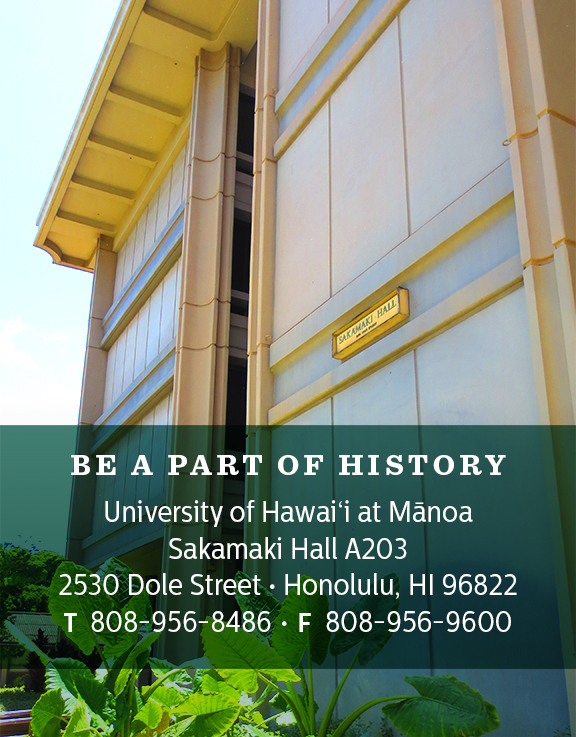PhD Alumni Voices
David G. Atwill
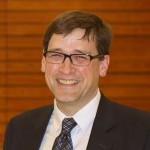 As a professor at Penn State University I often reflect on how UH Mānoa’s Department of History shaped my career. It remains among only a few universities in the nation where one can study all areas of Asian History as well as have Asian specialists across the Humanities. The strong Pacific Islands emphasis brought an even sharper focus to my own research on Asian borderlands. The program gave me the direction and space to discover my own research interests, particularly allowing me to develop thematic strengths in Islam in Asia.
As a professor at Penn State University I often reflect on how UH Mānoa’s Department of History shaped my career. It remains among only a few universities in the nation where one can study all areas of Asian History as well as have Asian specialists across the Humanities. The strong Pacific Islands emphasis brought an even sharper focus to my own research on Asian borderlands. The program gave me the direction and space to discover my own research interests, particularly allowing me to develop thematic strengths in Islam in Asia.
Associate Professor & Director of Graduate Studies
Department of History & Asian Studies, Penn State University
PhD Hawaiʻi, 1999
Timothy Barnard
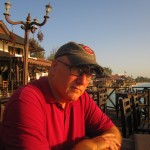 The Department of History at the University of Hawaiʻi at Mānoa provided the foundation for my professional life. I was able to work with leading scholars who encouraged and taught me how to conduct research on global societies and cultures that still influences my writing and teaching. This took place in a special atmosphere, as I was able to study and work alongside other young scholars interested in exploring the past of the Asia/Pacific region.
The Department of History at the University of Hawaiʻi at Mānoa provided the foundation for my professional life. I was able to work with leading scholars who encouraged and taught me how to conduct research on global societies and cultures that still influences my writing and teaching. This took place in a special atmosphere, as I was able to study and work alongside other young scholars interested in exploring the past of the Asia/Pacific region.
The Department not only played a role in nurturing me as a researcher, it also helped emphasize the importance of classroom teaching in a university environment. As is true with many graduate students in the Department of History, I was a Teaching Assistant for various first year classes. Working with award winning teachers who acted as mentors, I learned how to structure lectures, develop syllabi, construct assessments, and navigate many of the day-to-day issues that I have faced since my graduation in the late 1990s. Without such a base, I could have never had the career I enjoy today as an Associate Professor of History at the National University of Singapore.
Associate Professor
Department of History
National University of Singapore
PhD Hawaiʻi, 1998
Rainer Buschman
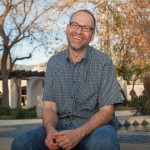
My graduate education at UHM’s History Department did well prepare me for the academic world. The intellectual genealogy I acquired at the History Department continues to mold both my teaching and research. UHM’s unique emphases of Pacific and world histories allowed me to negotiate a vibrant and growing historical niche that is now emerging as “Pacific Worlds.” My research in this area has led to four books, two additional book contracts, and an editorship of a Pacific World series through the University of Nebraska Press.
In terms of Pacific history, David Hanlon and David Chappell led me through the Pacific’s rich cultural history. Similarly, their ethnographic visions have honed my understanding of how global phenomena are frequently locally negotiated and subverted. The guidance of the late Jerry Bentley allowed me to recognize the Pacific as an alternative region to the general continental preferences of the historical profession. On this global scale, it is also possible to perceive comparative frameworks within which the Pacific can be read against the better studied Atlantic and Indian oceans. I find myself frequently consulting notes and recollections from Idus Newby’s historiography class for inspiration.
Likewise, I should mention the important opportunity I had to serve as teaching assistant for both world history sections. Inspired by great professors (Bentley, Chappell, Hanlon, Henriksen, Hoffenberg, Locke, and Ziegler) I was able to ease myself into the teaching of this subject. Without the support and inspiration of UHM’s History Department I would have not succeeded in the university profession from my first timid steps at Hawaii Pacific University to the challenging environments of the California State University Channel Islands (a start-up institution) and Purdue University (an internationally ranked research university). Wherever I resided, I could always rely on the experience gathered at and support of UHM’s History Department.
Professor of History
California State University Channel Islands
PhD Hawaiʻi, 1999
Keith L. Camacho

Hafa adai and greetings! As an alumnus of the Ph.D. program in history at the University of Hawaiʻi at Mānoa (UHM), it is my pleasure to say a few words about this department, its faculty and student body, and its teaching and research emphasis on the Pacific Islands.
In 1998, I received admission into this program. Although I could have pursued a Ph.D. in postcolonial theory and literature elsewhere, I decided to devote my energies to UHM and its vibrant community of Pacific scholars. My decision thus hinged on the fact that Professors David Chappell, David Hanlon (my chair), and Mimi Henriksen worked in this department. I especially wanted to learn more about their respective research projects on Kanak radicalism, U.S. colonialism, and American cinema. It made perfect sense to reside in Honolulu, enroll in their courses, and hone my craft as an interdisciplinary historian.
Outside of my classes, I enjoyed making friends with other students. I have very fond memories of Betty Ickes, Kerri Inglis, Bernardo Michael, Mark Ombrello, David Robyak, Fata Simanu-Klutz, and Hans Van Tilburg, among others. At least once every two weeks, we would meet at Magoo’s Pizza or Mānoa Garden to discuss new books and films, debate contemporary issues or simply hang out. We would even barbecue in the courtyard located at Sakamaki Hall when the campus slowed down around eight o’clock in the evening.
In 2005, I then defended my dissertation on the politics of war memory in the Mariana Islands. Shortly thereafter, the history program expanded to include Professors Noelani M. Arista and John Rosa, two outstanding scholars in the fields of Hawaiʻi and Oceania. If I had extended my stay at UHM, then I would have surely taken their classes as well!
Without a doubt, I had a great time here. I hope you do, too.
Associate Professor
Department of Asian American Studies
UCLA (University of California, Los Angeles)
PhD Hawaiʻi, 2005
Erin Ford Cozens
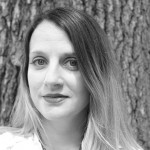
After a life-changing four years at the University of Hawaiʻi, I graduated from the History program with a PhD in Pacific History in 2011. My area of focus was 19th century New Zealand, and my research in particular focused on the intersections of gender, race, and space. I heard about the History program at UHM through my adviser at my Master’s program, Dr. Laura Prieto—I had written a thesis on New Zealand history, and she suggested pursuing a degree in Pacific History, and that the University of Hawaiʻi was the best place to do so. My choice to apply was solidified when I realized that UHM is the only university in the United States to offer a course in Māori language.
After a challenging, exciting, and informative time at Mānoa, during which I was fortunate to serve as a GA for the world History program and a lecturer in Pacific Island Studies, I took a position with the Office of the Historian at the U.S. Department of State. Here, I am able to put the myriad skills I learned in the History program to use, while contributing to the field of Public History. I also am able to use my subject area expertise to provide historical background information for those staff in the Department of State working on issues in the Pacific region.
Historian
U.S. Department of State
PhD Hawaiʻi, 2011
William Cummings
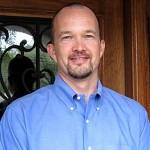
I arrived in the History department in Mānoa in 1993 and received my PhD in Southeast Asian History in 1999. Twenty years later I can see just how formative those years were. I was fortunate enough to work with Leonard and Barbara Andaya, and with their guidance and encouragement launched the scholarly career that has made me a professor and department chair today. In fact I had a number of outstanding professors on my committee who probably had a much deeper impact on the direction my research took and on the kind of professor that I try to be, than they realize. Jerry Bentley introduced me to World History and a whole set of broader contexts in which to view the past. Idus Newby shared his love of historiography and imparted in me the delight of challenging how students think about the past. David Hanlon showed me that the past was a delicate matter best handled with nuance and care.
Today my scholarly interests are in the area of historical consciousness and systems of thought. I am less interested in the past itself than in the histories that humans in different cultural contexts have made of it. History-making is a continual human activity, and I study the ways in which perceptions of and narratives about the different pasts are located, constructed, and given form. I think about the ways that historical sites, genres, and practices mediate the pasts we seek to comprehend. I have written about topics that range from the advent of literacy and historical manuscript production in premodern Indonesia to contemporary American historical film production related to the Vietnam War. My current research project is on how visual histories of the Vietnam War rely on genre conventions and other narratological features to construct the past in particular and peculiar ways. But it all began two decades ago in Sakamaki Hall, and I am delighted to take this opportunity to thank the History department and its extraordinary faculty for so deeply changing my life.
Professor and Chair
Humanities and Cultural Studies
University of South Florida
PhD Hawaiʻi, 1999
Michael Johnson
I was attracted to the history PhD program at the University of Hawaiʻi by the prospect of studying World History. Once enrolled, I found that many of the courses offered by the department, especially those focused on Pacific Islands history, enabled me to engage with world-historical scholarship in ways that would have been unavailable at other schools. When combined with the many language-training opportunities offered at UH, the department faculty and staff, and the relationships I formed with fellow students, this PhD program has helped me pursue a variety of personal and professional goals.
Assistant Professor
Department of History, Political Science & Philosophy
Texas A&M University, Kingsville
PhD Hawaiʻi, 2014
Monica LaBriola
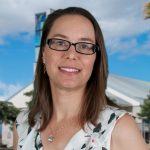
I grew up in Ohio and California and spent one year abroad in Switzerland in between. After completing my BA in Peace and Conflict Studies at the University of California at Berkeley, I spent just under two years working at a private foundation in San Francisco. After months in a desk job, I felt called to volunteer abroad and received a placement with Jesuit Volunteers on Ebeye, Marshall Islands, where I ended up spending three years as a teacher. While on Ebeye, I became increasingly interested in learning more about the Marshall Islands and the Pacific Islands in general, and began exploring ways to continue to pursue that interest academically and professionally.
After three years in the Marshall Islands, I came to UH Mānoa to pursue an MA in Pacific Islands Studies. While in the program, I took several classes in Pacific Islands history with David Hanlon and David Chappell, which I found to be of particular interest, and so I decided to continue my education in Pacific studies through a PhD in History. While I did consider applying to other PhD programs in California and beyond, the availability of UH Mānoa faculty across the disciplines with knowledge of the Pacific Islands region, together with UH Mānoa’s excellent Pacific Islands library collection, made UH Mānoa’s program particularly appealing. After all, researchers and scholars from around the world come to UH Mānoa to use the Pacific Collection in Hamilton Library and to consult with Pacific Islands scholars, so it only made sense for me to stay here and take advantage of these amazing and unique resources.
I came to the History PhD program with what some have called a stubbornly narrow focus on the Pacific Islands—and the Marshall Islands more specifically. In fact, when I started the PhD, I had very little interest in taking non-Pacific focused classes, and was somewhat dismayed at the prospect of taking courses in World and U.S. history. I can remember how overwhelmed I felt on my first day in Jerry Bentley’s World History seminar, as it seemed that everyone else knew a lot about topics and places that interested me very little. All this being said, I gradually learned the benefits of the History program’s four-field requirement, and I have only reaped the benefits of that requirement in my research and teaching. My concentrations in World and U.S. history have not only opened up doors for me to teach courses in those areas, but have also made me a much better Pacific Islands teacher and scholar by revealing to me far reaching connections and contexts that an exclusive focus on the Pacific Islands might have overlooked.
After graduating, I worked for several semesters as a World History lecturer on various campuses in the UH System. In Fall 2014, I was hired as a full time instructor at UH–West Oʻahu, and I will start as a tenure track Assistant Professor on that campus in Fall 2015. I have no doubt that the PhD program in History at UH Mānoa was instrumental in my securing my upcoming position at UHWO. In fact, I am certain that my concentrations in Pacific Islands, World, and U.S. history made me a much more marketable candidate for a small university focused primarily on undergraduate teaching. In the end, it was my ability to teach World, U.S., and Pacific Islands history that made me an excellent candidate for a position at an institution where everyone needs to be a bit of a generalist.
Assistant Professor of History
University of Hawaiʻi – West Oʻahu
PhD Hawaiʻi 2013
Bernardo Michael
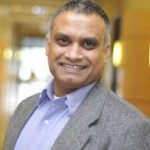
I am a professor of history in addition to the Special Assistant to the President and Provost, for Diversity Affairs at Messiah College, a small private liberal arts college in Pennsylvania.
If anything characterizes my experiences at the Dept. of History at UH Mānoa, it would be one of multiple crossings—geographic, disciplinary, and cultural. I arrived at the World Civilizations Program in Fall 1994 after spending 8 years in rural fieldwork in a remote region of Nepal. Culturally, I am a Malayali from South India I had lived my life in the North, in the city of Delhi before leaving for Nepal in 1987. I came with much anticipation, eager to get back to the rigor and intensity of graduate school. I had heard about the UHM history program mainly through the work of one of its great South Asian historians, the late Burton Stein (1926-1996) and strong Asia focus of the University. Unbelievable as it might sound, the beautiful beaches of Hawaiʻi were not a factor in my decision to join the history program at UH. My decision was finalized when I was awarded a Teaching Assistantship at the World Civilizations Program. Over the years I would learn to value the contributions of this program in my own intellectual development. I worked under the mentorship of the late Dr. Jagdish P. Sharma, the Department’s only South Asianist and his generous spirit still remains fresh in my memory.
The history program introduced me to the exemplary and inspiring work of scholars like Leonard and Barbara Watson Andaya, Jerry Bentley, David Hanlon, Brian Murton & Jon Goss (in geography), Peter Hoffenberg, Alan Howard & Gregory Mascarinec (anthropology), Sankaran Krishna (politics), and the legendary Idus Newby. These scholars taught me to celebrate interdisciplinary work, pursue scholarly activity with rigor, and be generous in my teaching. I met wonderful colleagues and friends while crossing the various divides of discipline and area-studies specializations that invariably mark the landscape of graduate studies in the United States. I have precious memories of these times and engagements.
The World Civilizations Program deserves special mention. As a teaching assistant it drove home the point that teaching was a worthwhile and rewarding pursuit. I learned to design and deliver World History curricula in the most accelerated fashion. I was exposed to rich repertoire of styles of teaching World History while meeting varied student needs on one of the most diverse campuses in the world. All these would stand me in good stead when I became an administrator in an office of diversity affairs.
My crossings at UH have synced quite well with multiple crossings undertaken before and thereafter. They made inclusion of diversity a central focus of my research, teaching, writing and service wherever I have found myself. I continue to teach part-time and administer diversity and inclusion programs while occasionally hanging out with my students in Nepal.
Any regrets? Only one. I do wish the incredible beaches of Hawaiʻi had factored in my decision to join UH. Perhaps I would have taken the effort to learn some surfing!
Associate Professor of History
Special Assistant to the President and Provost, for Diversity Affairs
Messiah College
PhD Hawaiʻi, 2001
Kelli Nakamura
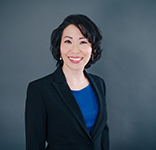
I am extremely grateful for the innumerable opportunities provided by the History Department at the University of Hawaiʻi at Mānoa. I appreciate the support, guidance, and mentoring particularly from faculty members like Mimi Henriksen who enabled me to receive my B.A., M.A., and PhD in history. As a history major, I learned how to become a better teacher by instructing students how to analyze events, develop reasoned conclusions, and effectively communicate their ideas. Through the study of history, I introduce students to concepts such as motivation, agency, causality, and contingency to encourage them become critical and engaged thinkers.
My history degrees also enabled me to be a lifelong learner as I regularly conduct research and publish articles on Japanese American and Hawaiian history that I share with my students, academic audiences, and community groups. My education has been invaluable in enabling me to achieve my professional goals of teaching, publication, advocacy, and networking that will enable me to advance in my career as a historian. Currently, I am an Assistant Professor at Kapiʻolani Community College where I teach History and Ethnic Studies courses and also regularly lecture at the History, Ethnic Studies, and Women’s Studies departments at the University of Hawaiʻi at Mānoa. The academic foundation that I received at the History department has allowed me to teach in different disciplines utilizing multiple approaches and perspectives that have helped to broaden my professional opportunities. I am deeply appreciative of the staff, faculty, and students of the History department who have enabled me to enjoy a lifetime of learning through the study of the past.
Assistant Professor of History
Kapiʻolani Community College
PhD Hawaiʻi, 2008
Lance Nolde
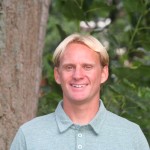
I first came to the University of Hawaiʻi at Mānoa in 2006, after completing my BA in History at California State University, Channel Islands. I chose to pursue my MA and Ph.D. in the University of Hawaiʻi at Mānoa History program because of its strengths in Southeast Asia, Pacific Islands, and World history and the reputation of the faculty in those fields. The variety of fellowships and funding opportunities available to UHM graduate students, including Teaching Assistantships and Foreign Language Area Studies Fellowships, were also important incentives. My experience at UHM was overwhelmingly positive and exceeded my expectations. The classes and seminars were rigorous and engaging, and the diverse interests and strengths of the History faculty meant a variety of interesting classes were on offer each semester. The large number of Southeast Asia related courses offered in other departments on campus also added an important interdisciplinary component to my training and research. While at UHM I was fortunate to have an excellent advisor and to work closely with other faculty and staff who were genuinely invested in student success. My advisor and other faculty guided me in my studies and research and helped me to prepare for the job market. With their support I was able to secure the funding necessary for my research and the completion of my dissertation and I have since been appointed to a tenure-track position in history at the California State University, Los Angeles. I hope to provide my students with the quality of education and the level of support that was afforded to me in the UHM History program.
Assistant Professor
Department of History
California State University, Los Angeles
MA Hawaiʻi, 2008; PhD Hawaiʻi, 2014
Joel Tannenbaum
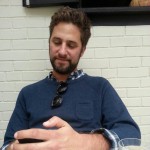 I am currently an Assistant Professor in the Department of History, Philosophy and Religious Studies at Community College of Philadelphia, where I teach classes in Global History and American History. My research concerns the intersection of public and private health care regimes in the twentieth century, particularly with regard to organ transplantation. An article based on my dissertation research at University of Hawaiʻi was recently published in the science studies journal Configurations. I am a native of the Philadelphia region who travelled extensively before returning in 2008, somewhat by accident. I am married and have no children. My admittedly limited understanding of the world is shaped, in unequal measure, by Marxian political economy, Popperian anti-historicism, Dewey’s naturalism, that French guy with the glasses, Cambridge school economics, punctuated equilibrium, the Cyborg Manifesto, and the culture of DIY punk, which I cannot seem to extricate myself from no matter how hard I try.
I am currently an Assistant Professor in the Department of History, Philosophy and Religious Studies at Community College of Philadelphia, where I teach classes in Global History and American History. My research concerns the intersection of public and private health care regimes in the twentieth century, particularly with regard to organ transplantation. An article based on my dissertation research at University of Hawaiʻi was recently published in the science studies journal Configurations. I am a native of the Philadelphia region who travelled extensively before returning in 2008, somewhat by accident. I am married and have no children. My admittedly limited understanding of the world is shaped, in unequal measure, by Marxian political economy, Popperian anti-historicism, Dewey’s naturalism, that French guy with the glasses, Cambridge school economics, punctuated equilibrium, the Cyborg Manifesto, and the culture of DIY punk, which I cannot seem to extricate myself from no matter how hard I try.
I was recommended to the UHM History program by the great (and now deceased) historical sociologist Andre Gunder-Frank. Through him I was directed to Jerry Bentley (also now deceased) and Peter Hoffenberg, who ultimately became my advisor, mentor and dear friend. Along with Louise McReynolds (now at UNC Chapel Hill) and Peter Manicas (now retired) they promised me a rigorous intellectual environment in which I would be given considerable freedom to chart my own course. Their promises proved true. A three-year teaching fellowship helped keep body and soul together (yes I am aware of the irony) and provided valuable classroom experience. All in all, I enrolled as a PhD student at UHM History because it offered the right combination of intellectual freedom and intellectual rigor for me to do what I needed to do.
During the five semesters between entering the program and passing my comprehensive exams, I was given what would have been considered an astonishing freedom of movement in another graduate history program. In addition to the standard battery of graduate history seminars, I was permitted to take courses outside the department in economic theory, medical anthropology, and French translation. I was even permitted to take sufficient graduate coursework in the sociology department to ultimately adopt sociology as an exam field. During the summers I participated in intensive language programs at Bogazici University in Turkey and at Ohio State University. Throughout, I served as a teaching assistant in a highly structured system of undergraduate lectures that provided graduate students with an excellent mix of learning by observation and learning by doing. When I left to commence my dissertation research in early 2007, I was thoroughly energized and prepared.
I was offered a full-time, tenure-track position at Community College of Philadelphia in 2009, and there is no doubt in my mind that it was the prestige of University of Hawaiʻi within the field of World History that attracted them to me in the first place. Many people who wind up teaching World History are specialists in another field and drift into World History due to the vagaries of the job market. Thanks to UHM History, I approach World History as a disciplinary end in itself, with its own canon, its own dissenters and heretics, and its own theoretical assumptions.
Assistant Professor
Department of History, Philosophy and Religious Studies
Community College of Philadelphia
PhD Hawaiʻi, 2013
